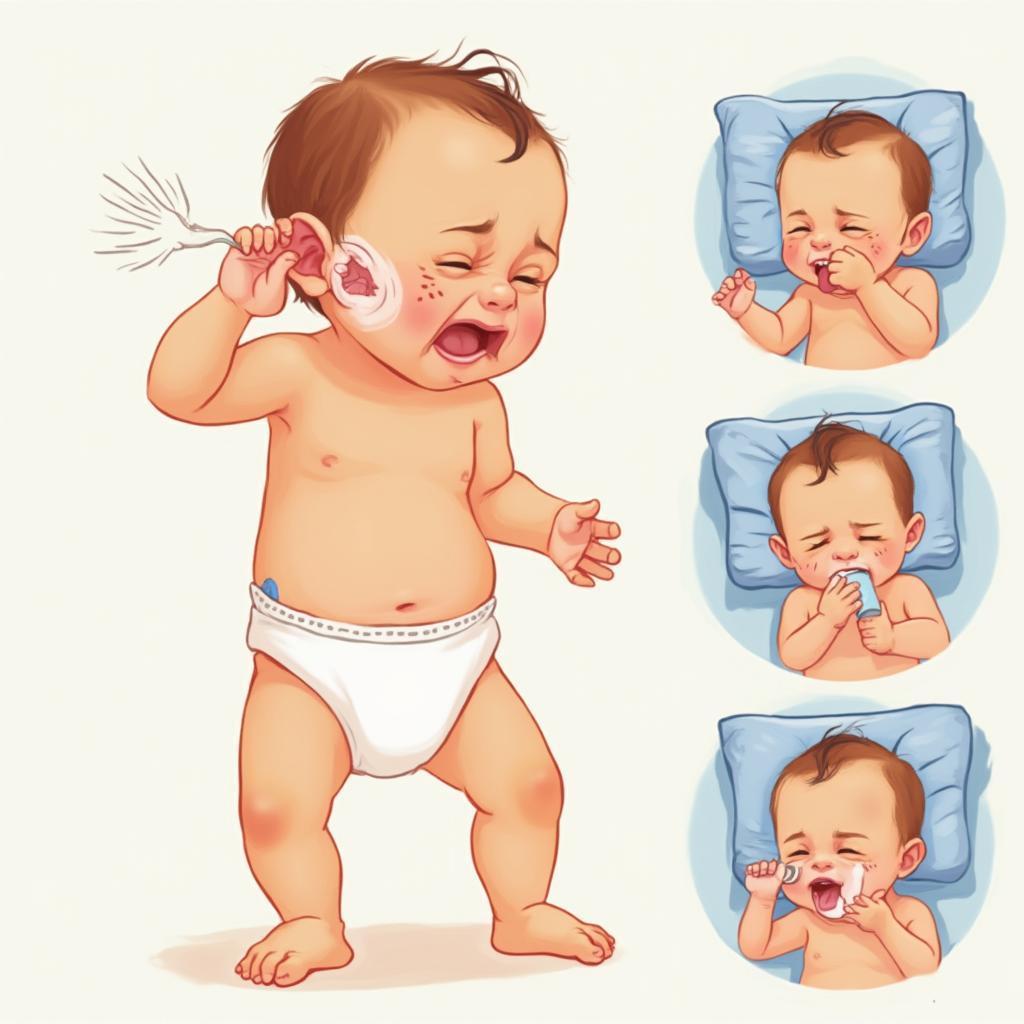Your cart is currently empty!

Ear Infection Care Tips: A Comprehensive Guide
Ear infections can be painful and disruptive, affecting people of all ages. Understanding the causes, symptoms, and treatment options can help you manage ear infections effectively and prevent potential complications. This guide provides comprehensive Ear Infection Care Tips to help you navigate this common ailment.
Understanding Ear Infections
Ear infections, also known as otitis media, occur when the middle ear, the space behind the eardrum, becomes inflamed and infected. This often happens due to a buildup of fluid, creating a breeding ground for bacteria or viruses. There are three main types of ear infections: acute otitis media (AOM), otitis media with effusion (OME), and chronic otitis media with effusion (COME). AOM is a sudden infection characterized by pain and fever. OME involves fluid buildup without infection, while COME is a persistent fluid buildup lasting for weeks or months.
Identifying the Symptoms of an Ear Infection
Recognizing the symptoms of an ear infection is crucial for prompt treatment. Common signs include ear pain, especially when lying down, tugging or pulling at the ear, fever, fluid drainage from the ear, hearing difficulties, and balance problems. In infants and toddlers, irritability, poor sleep, and difficulty feeding can also indicate an ear infection.
 Ear Infection Symptoms in Infants and Toddlers
Ear Infection Symptoms in Infants and Toddlers
Effective Ear Infection Care Tips
Managing ear infections effectively involves a combination of home care and medical treatment. For mild cases, home remedies like applying a warm compress to the affected ear can provide relief. Over-the-counter pain relievers, such as ibuprofen or acetaminophen, can help manage pain and fever. It’s important to avoid using ear drops unless prescribed by a doctor.
When to Seek Medical Attention
While some ear infections can clear up on their own, it’s crucial to seek medical attention if symptoms persist or worsen. If the pain is severe, accompanied by a high fever, or if there’s discharge from the ear, consult a doctor immediately. They can diagnose the type of ear infection and prescribe appropriate treatment, which may include antibiotics.
Preventing Ear Infections
Several measures can help prevent ear infections, particularly in children. Practicing good hygiene, such as frequent handwashing, can reduce the spread of germs. Avoiding exposure to secondhand smoke is also important, as it can increase the risk of ear infections. For babies, breastfeeding can provide protective antibodies. Vaccinations, such as the pneumococcal and flu vaccines, can also help prevent ear infections. Similar to how taking care of a piercing requires meticulous hygiene as described in tips on taking care of nose piercing, maintaining ear hygiene is crucial.
Long-Term Ear Infection Management
In cases of chronic ear infections, long-term management strategies may be necessary. This could involve regular monitoring by an ear, nose, and throat specialist (ENT) and sometimes surgical intervention, such as the insertion of ear tubes to drain fluid and improve hearing. Just like specific care instructions are crucial for certain corals like in goniopora coral care tips, specialized care may be needed for persistent ear infections. It’s vital to follow medical advice carefully and adhere to the prescribed treatment plan. Remember that good general health practices, similar to those found in baby care tips malayalam, can contribute to overall well-being and help prevent recurrence.
Conclusion
Ear infections can be uncomfortable, but with proper care and management, they can be effectively treated. Recognizing the symptoms and seeking timely medical attention are crucial. By following these ear infection care tips and adopting preventive measures, you can minimize the impact of ear infections on your health and well-being. For those interested in general health and wellness, you might also find helpful information on feet care tips dailymotion and bikini care tips in hindi.
FAQ
-
What is the most common cause of ear infections?
Respiratory infections, such as the common cold or flu, are the most common causes of ear infections. -
How long do ear infections typically last?
Most ear infections resolve within a week or two, even without antibiotics. -
Are ear infections contagious?
While ear infections themselves are not contagious, the respiratory infections that often cause them can be. -
Can ear infections cause permanent hearing loss?
While rare, untreated or chronic ear infections can potentially lead to hearing loss. -
When should I take my child to the doctor for an ear infection?
If your child has severe ear pain, a high fever, or discharge from the ear, seek medical attention immediately. -
Are there any natural remedies for ear infections?
Warm compresses and over-the-counter pain relievers can help manage symptoms, but always consult a doctor before using any home remedies. -
How can I prevent ear infections in my child?
Encourage frequent handwashing, avoid exposure to secondhand smoke, and ensure your child receives recommended vaccinations.
Need further assistance? Contact us via WhatsApp: +1(641)206-8880, Email: [email protected] or visit our office at 456 Pine Avenue, Toronto, ON M5V 2J4, Canada. Our customer service team is available 24/7.

Leave a Reply